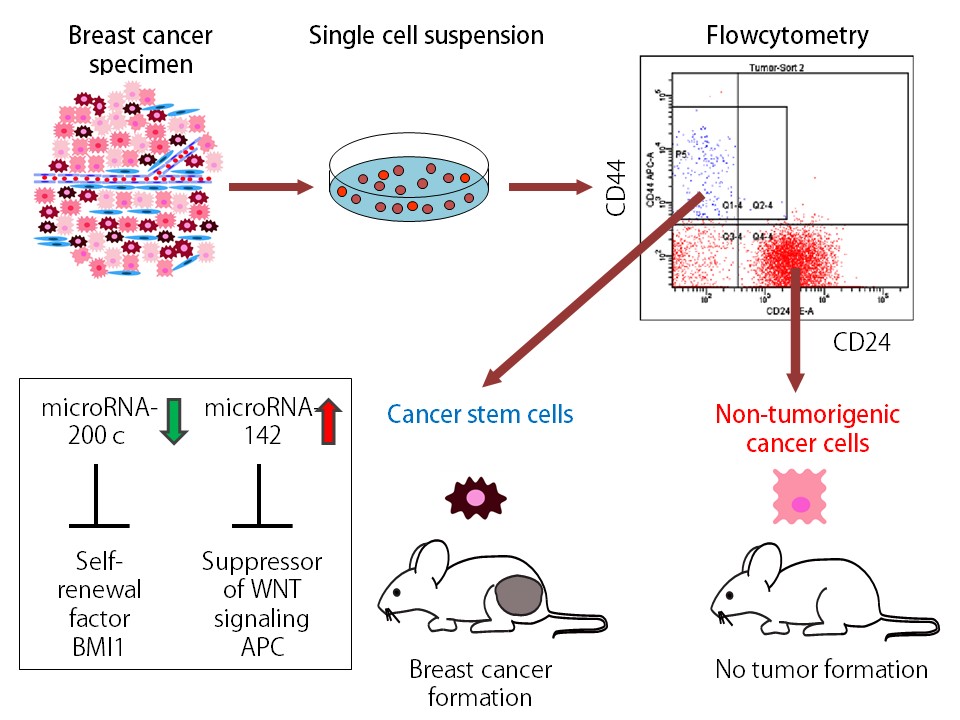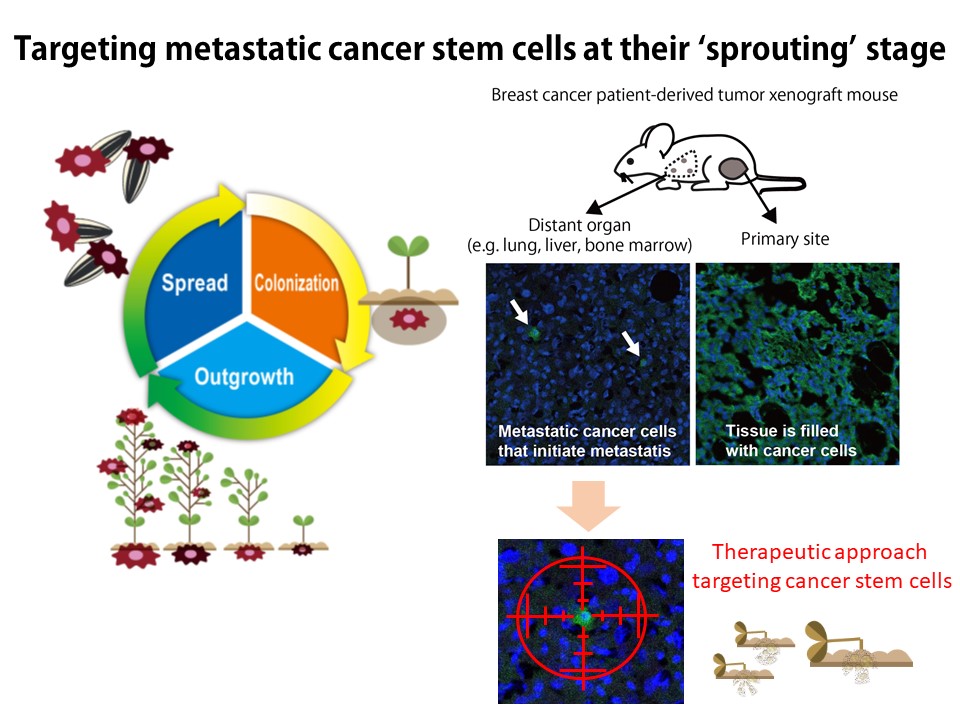Cancer stem cells

Cancers are complex tissues composed of a mixture of malignant and normal cells. Even in malignant cells, there exist phenotypic and functional heterogeneity (tumor heterogeneity).
Cancer stem cell theory, which was first proposed in 2003, provides one explanation for cancer heterogeneity in a tumor. The theory posits the presence of cancer stem cells in cancer tissues; and cancer stem cells divide to generate phenotypically distinct cancer cells, contributing to form a tissue composed of heterogenous cancer cells.
The cell sub-populations that, within a specific tumor, retain tumorigenic capacity upon serial transplantation and are able to sustain the formation of tumors that recreate the cellular diversity of the parent lesions, are operationally defined as “cancer stem cells”(Lobo NA et al. Annu. Rev. Cell. Dev. Biol., 2007; Shimono Y et al. JCM, 2016; Mukohyama J et al. Cancers, 2017). Hierarchical organization of a tissue in which stem cells are involved in the tissue maintenance and turnover is observed in normal tissues, such as dermal and intestinal epithelium, and blood tissues.
We have reported their epigenetic regulation (i.e. microRNAs) of cancer stem cells
(Shimono Y et al. Cell, 2009; Isobe T et al. eLife, 2014; Sakaguchi M et al Mol. Cancer Res., 2016; Mukohyama J et al.Cancer Research, 2019). Our research showed the molecular mechanisms that potentially characterize cancer stem cell population within a tumor, at least part of which are shared with stem cells within normal tissues. Our research on cancer stem cells, a cell population that are considered to resist cancer therapies, aims to understand the roles of cancer stem cells in cancer development and to find better ways for innovative cancer therapies.
Metastatic cancer stem cells

It has long been observed that cancer metastasis is not a randam event, but rather an organ-specific occurence (Steven Paget's “seed and soil” hypothesis). There is increasing evidence that metastatic foci are initiated by the cancer cells (“seeds”) with cancer stem cell properties. The initiation steps of metastatic foci development, in which the cancer cells (“seeds”) adjust and settle in the microenvironment of host organ (“soil”), will resemble a sprouting process of the seeds (“sprout for metastasis”). We have analyzed the cancer stem cells at the initial stage of distant organ metastasis and identified a set of genes associated with the early steps of cancer stem cell metastasis (Liu H et al. PNAS, 2010; Nobutani K et al. PLoS One, 2015).
Although cancer treatment stragegies have shown a great progress, effective treatments against metastatic cancers have not been fully established. By applying the expertise on cancer stem cell reserach, which I learned at the Clarke lab in Stanford University, we aim to identify molecular mechanism for early colonization mechanism of metastatic cancer cells and to find ways to target them.
Links




